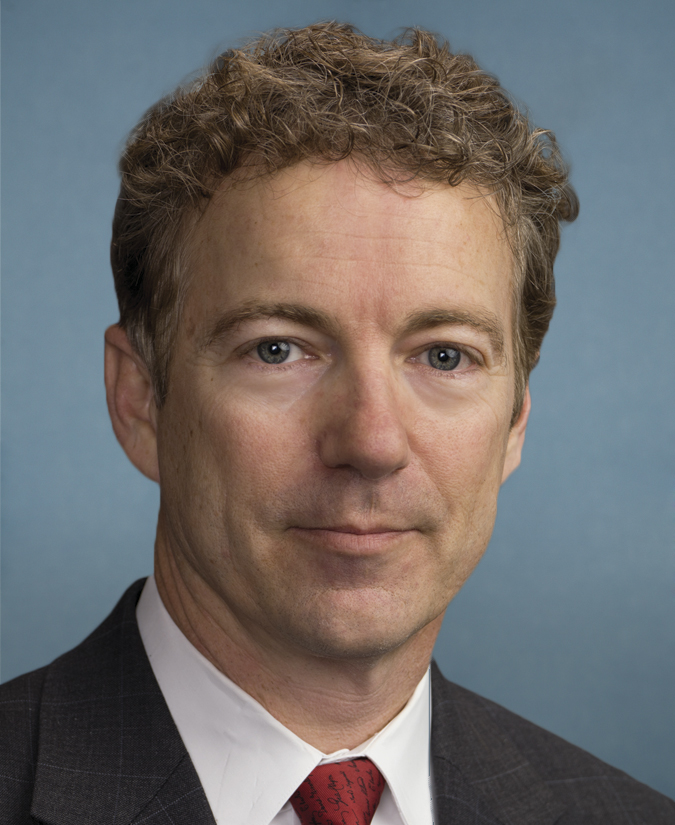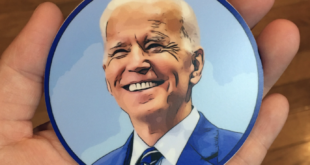Michael McGregor
Radix Journal

My post on the Pauls last week caused quite a discussion to take place in the comments section, with one commenter in particular remaining obstinate on the usefulness of Rand Paul and how identitarians can infiltrate his campaign and land positions within his potential Presidential administration.
This is a foolhardy concept and I’ve covered just how awful the new libertarian movement is in a previous article. But some still hold out hope that Rand might turn out different, that he could (wittingly or unwittingly) become a defender of the white race when he’s elected President, and all of the racially-minded whites who helped would get sweet positions in the White House.
Oddly enough, Politico ran a series of articles that discussed Rand Paul, his current positions, and his chances in 2016 right after my post published. Let’s say they should kill any doubt about Rand’s willingness to be good on any issue that identitarians care about and his chances of actually becoming President of the United States are nil.
Let’s first check in with him campaigning and how he is aggressively pursuing minority outreach:
But Rev. Kevin Cosby, an influential black leader in Louisville’s West End, calls the senator a friend, and he’s eager to praise Paul for his efforts on restoring felons’ voting rights, ending mandatory sentencing laws for drug crimes and promoting Economic Freedom Zones, which would include the West End.
“I think he is a man of conviction,” Cosby told me. “And whether you agree with him or disagree with him, he has his core beliefs. And some of those core beliefs are important to the black community.”
Cosby has a congregation of 14,000 people—including Neal—at St. Stephen’s church, and he is also the president of the historically black Simmons College in Louisville. When Simmons finally received national accreditation in late February, Paul was there.
It was at the school that I met Cosby and Paul late last year and was allowed to sit in as the two men discussed Malcolm X. In an office lined with African ceremonial masks, Paul listened intently to Cosby, who later told me that Paul is asking the right questions and seems genuinely interested in the answers, pointing out that Paul, a Texas native, has learned that while a term like “states’ rights” is a rallying cry for many conservatives, to black voters it can sound like a call for a return to the era of the Dixiecrats.
If Paul is faking it, he’s committed to the scam.
Nothing quite says defender of the white race like sitting in a room filled with African ceremonial masks and discussing the merits of Malcolm X. And nothing really represents white interests like calling for the elimination of mandatory sentencing laws and wasting more money on trying to promote “economic liberty” in America’s inner cities.
Some said that Rand is still good on foreign policy, that he is still a non-interventionist and would not wage war against countries that uphold tradition..like, I don’t know, Russia. Well, like I said previously, the one position he’s trying to act less libertarian on is foreign policy:
Recently, however, as his presidential star has risen—Paul won the CPAC straw poll handily earlier this month, and he is leading most of his rivals in Iowa—he appears to be trimming his sails with an eye to the 2016 nomination. Despite his antipathy to foreign aid, which he likens to “welfare,” Paul has warmed noticeably to Israel, a position popular with social conservatives. (“When I look at it and say, ‘Well, who would I cut [foreign aid from] first?’ Well, maybe the people who are burning our flag, maybe the people who are chanting, ‘Death to America,’” he said last year. “And one of the comments I made in Israel was, ‘I don’t see anybody here, nor do I imagine an Israeli burning an American flag.’”) Now, faced with the need to say something suitably “presidential” about the renewed threat of Russian expansionism, he appears to be trying to square his anti-interventionist doctrine with his party’s tradition of muscular and unapologetic nationalism. In this, he has not succeeded.
To add more damage to his credibility on foreign policy, Alexander McCobin, the President of Students of Liberty and the same guy who said that libertarianism had no place for “racists,” “homophobes,” and otherwise traditionally-minded folks praised Rand’s “tough” position on Ukraine, while trashing Ron Paul for his adherence to non-intervention (keep in mind, McCobin’s career is entirely due to the popularity of the elder Paul). Earning praise from McCobin is akin to earning praise from the SPLC in my book, this guy’s positions on everything are disgusting.
So we can safely check him off for having dignity, principle, decent foreign policy stances, and standing up for white interests. But you might insist that he could still be president and might go back to that guy we thought he was when he ran for Senate in 2010. Unfortunately, Rand has to win the approval of the American public and they frankly hate libertarianism:
Nearly every election cycle, a poll comes out suggesting that many Americans, and a big chunk of swing voters, think of themselves as “fiscally conservative but socially liberal,” and therefore possibly open to libertarian candidates who want to police the deficit but not your sex life. These voters are the political equivalent of people who describe themselves as “spiritual but not religious.” It’s basically an empty formulation to avoid picking a side or a fight; it’s shallow, but it sounds good. The problem, at least for Rand Paul, is that “fiscally conservative but socially liberal” is not a long way of saying “libertarian.” Paul’s libertarianism is intended to offer a little something for everybody, on the left and right—spending cuts for the Republican base, legal relief for potheads, a presidential pat on the head for gay people. But if he gets serious about substantive reform along these lines, his libertarianism is instead going to offer something to outrage everybody.
…
Paul’s challenge is to seek a smaller state while not advocating cuts to anything anybody’s grandmother cares about, to sell a live-and-let-live social policy to busybodies and bluenoses on both sides and to articulate a foreign policy that is less reliant on the projection of national strength without projecting weakness instead. Trouble is, he has to do all that to the satisfaction of an electorate whose members mostly think that a libertarian is somebody who works in a library, courting the debased descendants of Patrick Henry as they shout with one voice: “Give me liberty, or give me a check!”
In 2016, they’re going to vote for the check.
Let us swear ourselves to do one thing in 2016 – to not volunteer, campaign, donate money, or waste our valuable time supporting Rand Paul’s quixotic quest for the White House. We wasted enough of our time and money on his father and all it did was empower a movement that is just as hostile our interests as any other mainstream ideology.
Rand is not a potential ally – he’s a reliable dupe of the system we oppose.
 Daily Stormer The Most Censored Publication in History
Daily Stormer The Most Censored Publication in History


